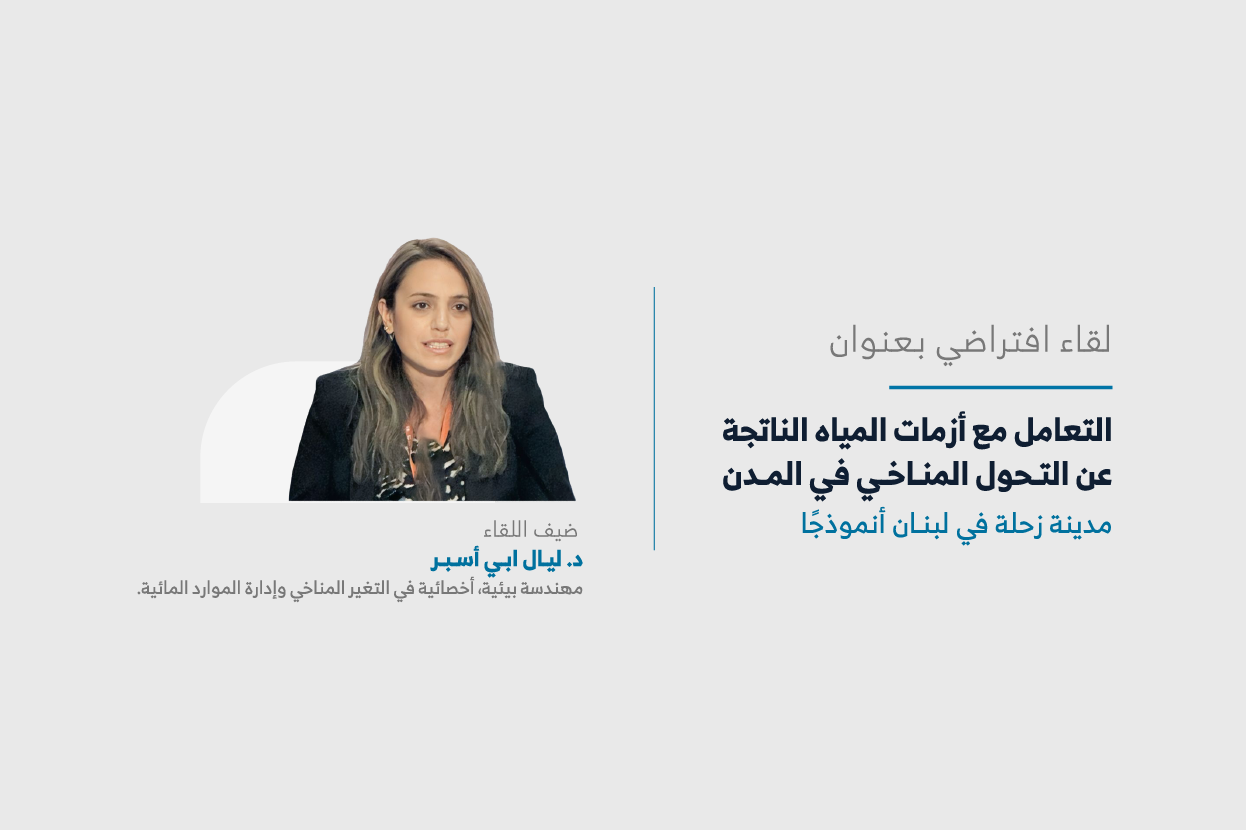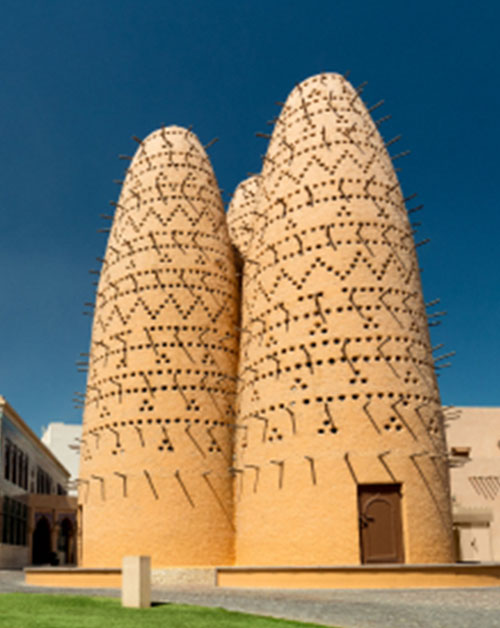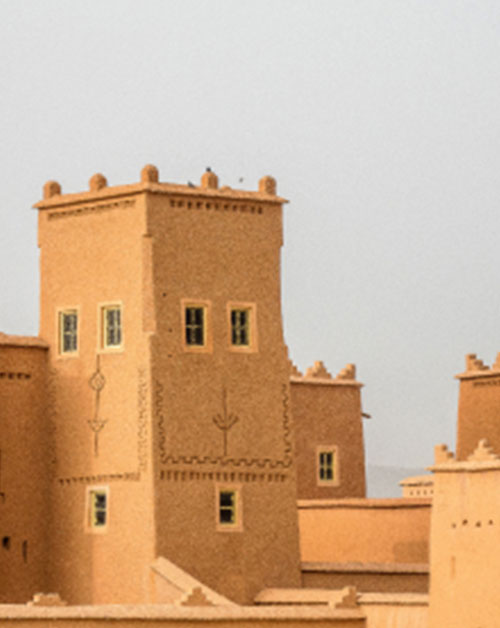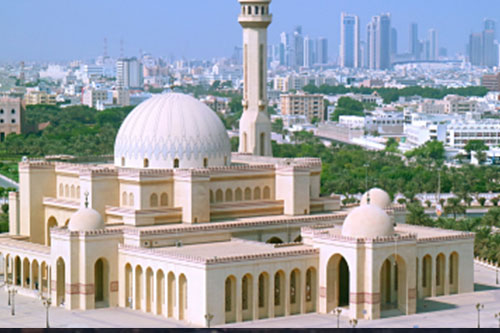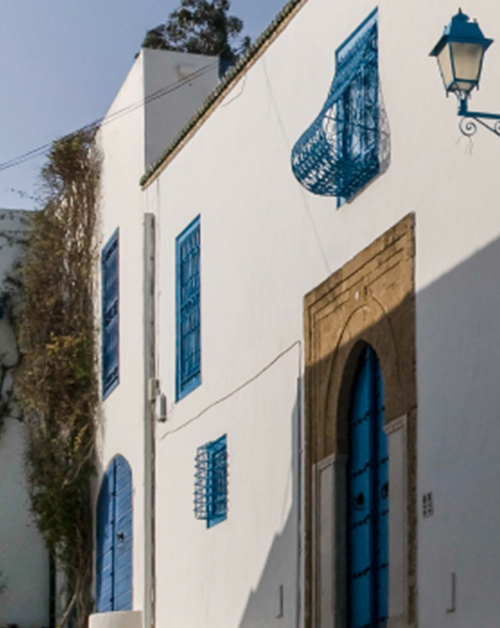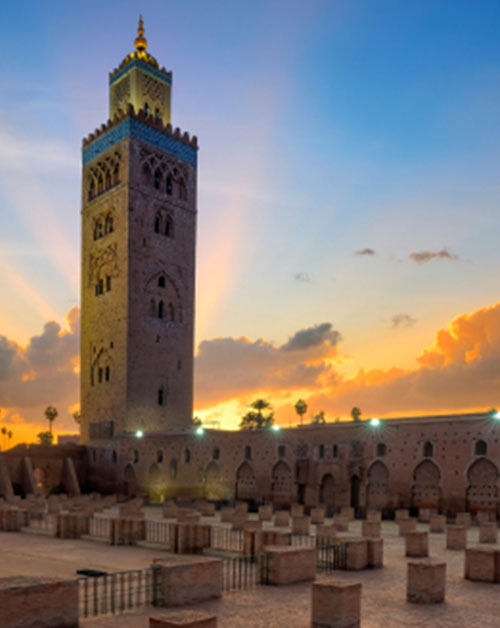Back
The Institute holds the eighth meeting of the Cities in Action Webinar series on Dealing with water crises resulting from climate transformation in cities, Zahleh city in Lebanon as a model.
26 Nov 2024
The Arab Urban Development Institute (AUDI) organized its eighth session of the Cities in Action webinar series on Tuesday evening,24 Jumada al-Awwal 1446 AH, corresponding to November 26, 2024, in the presence of several specialists and professionals interested in urban development affairs.
Dr. Abdullah Dhaifallah, moderator of the webinar and Professor of Urban Planning, began the session with an overview of the webinar series and highlighted its importance in enriching the discussion on urban development across all Arab cities. He also stressed that the benefit of these sessions lies in identifying pioneering urban development projects and exchanging ideas on mechanisms and the elements of success.
The meeting was opened with a presentation by Lyali Abi Asbar, an environmental engineer specializing in climate change and sustainable environmental management and a climate change specialist at the UN-Habitat office in Lebanon.
Eng. Lyali Abi Asbar commenced her talk about Lebanon’s multiple crises since 2019, beginning with the Syrian exodus through the financial crisis, the COVID-19 pandemic, and the Beirut explosion. With an estimated $7 billion in financial losses resulting from the war in 2024. and its impact on food security and agricultural practices.
She reviewed the U & Habitat project, initiated in 2021 in Lebanon, which aims to promote adaptation to the water challenges posed by climate change in Lebanon. The regional project had reached its final stages after three years of implementation. It is funded by the Adaptation Fund.
She noted the importance of the Zahla Region, highlighting the decision to study and carry out activities related to the project. This area is experiencing rapid urbanization and is recognized as a strategic agricultural area in Lebanon; however, it faces significant water management challenges.
She mentioned the objectives of the project being implemented in Zahla to address growing challenges through four key components, focusing on civic planning, water management, knowledge dissemination, and adaptation to climate change.
She reported on the latest current results, with urban expansion scenarios such as “strategic balance” and “ideal green scenario” developed as part of improving civil planning in line with climate change.
She stressed that such concrete projects reflected complementarity in sustainable solutions and a clear mechanism for dealing with the region’s environmental and water challenges. This improves the quality of life in cities.
At the end of the meeting, Dr. Abdullah Dafiullah thanked the attendees for their interaction and valuable participation, commending the outstanding role of Eng. Lyali Abi Asper is leading this outstanding show of dealing with water crises resulting from climate transformation in cities. He stressed the importance of continuing these meetings to enhance
cooperation and knowledge exchange among specialists in urban development.
